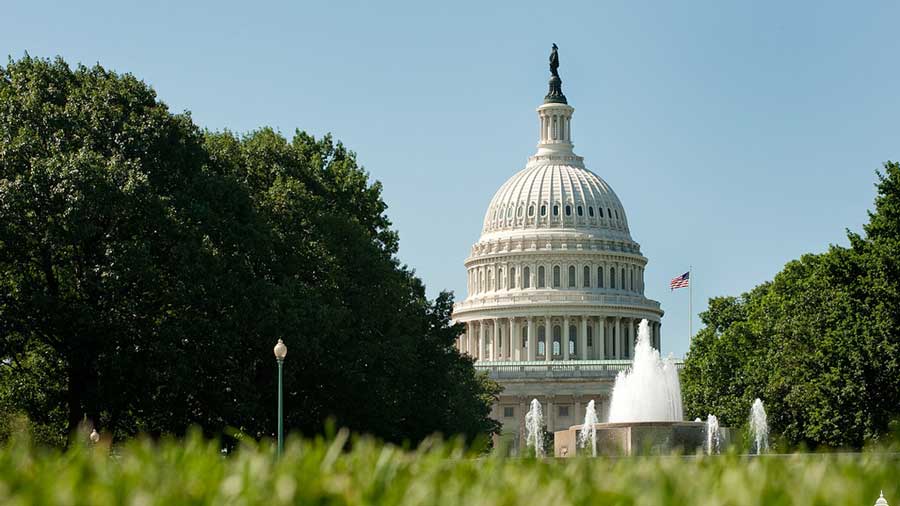Senate Democrats Introduce Digital Equity Act

The smarter way to stay on top of broadcasting and cable industry. Sign up below
You are now subscribed
Your newsletter sign-up was successful
A trio of Senate Democrats have launched the latest legislative effort to close the digital divide, this one aimed at funding state and community group efforts.
That would be in addition to the billions of dollars in federal broadband aid dollars already being given out through the Universal Service Fund's various programs for low-income residents, schools and libraries and telemedicine. But the bills' backers are among those who say that federal effort has not gotten the digital inclusion job done.
Related: Manchin Says FCC Mobility Map is Wrong
Sens. Amy Klobuchar, co-chair of the Senate Broadband Caucus, and Tina Smith (both Minn.); and Patty Murray (Wash.), have introduced the Digital Equity Act of 2019 to spread the wealth on the local level.
The bill, whose goal is to provide broadband access tools and technologies to "traditionally overlooked communities," creates an annual $120 million formula grant program for states, the District of Columbia, and Puerto Rico, to create individualized "digital equity plans," plus another annual $120 million competitive grant program for similar projects by groups, coalitions, and communities of interest.
It also charges the National Telecommunications and Information Administration (NTIA), the Administration's chief communications policy adviser, with studying the results and "providing policymakers at the local, state, and federal levels with detailed information about which projects are most effective."
Co-sponsors include Sens. Mazie Hirono (D-Hawaii), Angus King (I-Me.), Sheldon Whitehouse (D-R.I.), and Richard Blumenthal (D-Conn.).
The smarter way to stay on top of broadcasting and cable industry. Sign up below
“As we rely more on technology in our everyday lives, we have to make sure that every family has access to broadband, regardless of their zip code. This legislation will help close the digital divide and bring high-speed internet to communities across the county,” said Klobuchar.
Related: O'Rielly Proposes Cap on USF Fund
The bill "thoughtfully addresses digital equity and seeks to expand technology opportunity for all,” said FCC commissioner Jessica Rosenworcel.
“Local and state leadership drive most efforts to bring people online with affordable Internet access and training. On the one hand, this is fabulous because trusted community relationships are essential to effective digital inclusion work. On the other hand, financial support of local digital inclusion work is sorely lacking," said National Digital Inclusion Alliance executive director Angela Siefer.
The bill's prospects are unclear given that it has not Republican co-sponsors in a Republican-controlled Senate, represents hundreds of millions of dollars of government grants and is backed by groups generally at odds with Republican communications policies, including Free Press, Public Knowledge and Common Cause.
A version is also being introduced in the Democratically controlled House, where its prospects should be brighter.
Contributing editor John Eggerton has been an editor and/or writer on media regulation, legislation and policy for over four decades, including covering the FCC, FTC, Congress, the major media trade associations, and the federal courts. In addition to Multichannel News and Broadcasting + Cable, his work has appeared in Radio World, TV Technology, TV Fax, This Week in Consumer Electronics, Variety and the Encyclopedia Britannica.

